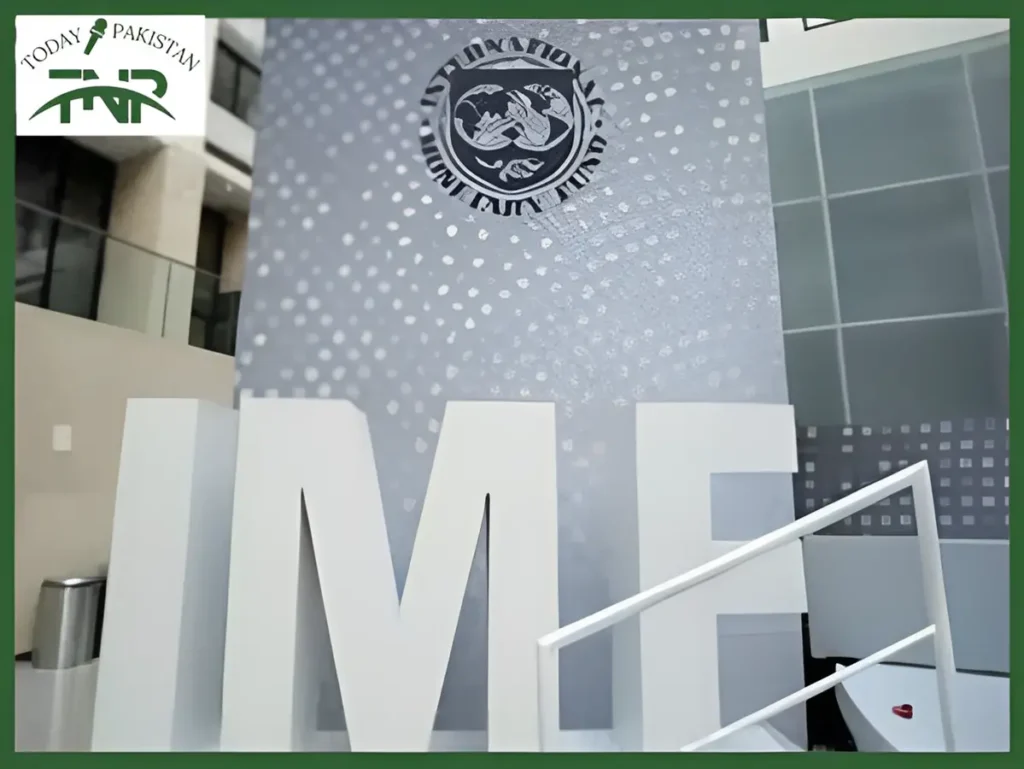The approval of Pakistan’s much-needed $7 billion bailout from the International Monetary Fund (IMF) is threatened by the possibility of being put off until October if the country cannot find the financing guarantees needed. The Washington-based lender has laid down stringent terms for the 37 months Extended Fund Facility (EFF), while Pakistan is in dire need of bridging a $2 billion financing gap from the buddies, which is essential and mandatory to be met from the current week.
IMF’s Conditions and Pakistan’s Financing Problem
To make the IMF bailout package, Pakistan needs to complete and sign a Letter of Intent (LoI) as a package to the IMF’s Executive Board. This LoI points to approval of the International Monetary Fund by Pakistan on all the conditions which have been promised to ensure that the granted financial assistance will be properly used for the consolidation of the country’s economy.
However, currently, Pakistan is still to get commitments from the major lending partners. The IMF Executive Board which takes decisions on such matters has Pakistan on its agenda and it does not have it on the agenda for any of its upcoming meetings until September 18, 2024. As time passes Pakistan seems to be in the middle of a hard fight for the financing of $2 billion required for this important bailout.
The bailout could again be pushed more in the future if this financing is not received within the week; the International Monetary Fund Bailout approval will take time stretching to October. This delay could prove very sensitive to Pakistan’s economy, which still struggles with inflation, the decline in foreign exchange reserves, and fiscal disequilibrium.
Implications of a Delay: Mini-Budget and Fiscal Shortfalls
If the approval is dragged into October then the IMF may suggest that Pakistan opens a mini-budget for any slippages on the fiscal front. The proposal to switch to it may be considered if Pakistan faces difficulties in realizing its tax and nontax revenues, which are part of its plan for achieving its fiscal adjustment goals.
The Federal Board of Revenue (FBR) late in August and early this month estimated the government would face a revenue loss of between Rs. 200-220 billion for the current quarter of July-September. The maximum revenue estimates are expected to be down between September 18 and 20, 2024. This projected fiscal deficit further loads additional pressure on Pakistan’s financial situation as it attempts to avoid implementing more austerity that would add more weight on the people of Pakistan.
If the mini-budget is to be made, it must entail increasing taxes or else, cutting government spending – policies that are negative for any economy’s growth and often lead to growing dissatisfaction among the population. The idea of such a situation underlines the challenges that Pakistan has in front of it in an attempt to get IMF support and restore the country’s stabilization.
Read More Blogs:
KP Reports 34,000+ Cases of Gastro and Diarrhea in One Week: A Public Health Crisis
Monetary Policy Committee Meeting: Hope for a Policy Rate Cut

However, Pakistan’s Ministry of Finance does not leave the chances of a delay risk big and is now eyeing respite from the upcoming MPC meeting on September 12, 2024. The Ministry is now calling for a hefty cut on the policy rate ranging from 150-200 bps, which is aimed to reduce the financial pressure on the government as well as buoy up the economy.
A reduction in the policy rate means a reduction in the rate of interest that borrowers have to pay, this might encourage borrowing for investment and consumption purposes which are very central to the growth of the economy. On the other hand, the decision to reduce rates also poses its own problems because; inflation is still an important factor in Pakistan. Translating an upturn policy approach into practice while at the same time striking a balance on the inflation fight will be a delicate issue for the MPC and the general consensus of the result of the meeting is anxiously expected by the government and the market.
Economic Outlook and Future Prospects
Pakistan’s economy has now reached a crossroads. The IMF bailout with this perspective is viewed more as a containment of the country’s immediate balance of payment problems, the foreign exchange reserve situation, and the country’s ability to service its external debts. If Pakistan fails to secure IMF assistance, the Country may fail to meet most of its obligations in the international market, which implies downgrading of the credit rating and poor investor sentiment.
However, any additional time needed for the approval by the International Monetary Fund would mean a deeper degree of economic risk and its potential consequences in terms of inflation, employment, or any changes to economic performance. Minimizing the likelihood of high inflation, bankruptcy, and consumer losses, businesses and consumers alike are struggling with the impact of protectionism and an unpredictable economy; thus, delaying the aid of the IMF would only intensify these problems.
However, the government has to be extra careful so that it does not commit further fiscal blunders on the way. It could cause the need for more revenues to be collected which can mean either increasing taxes or cutting expenditure to the public since both of those are unpalatable in any country, in any condition but especially in a country that is economically challenged.
Conclusion
In the coming few months, attention will shift to Pakistan’s ability to address the US$2 billion financing gap, to secure the IMF bailout, and to undertake the required fiscal and monetary measures to fix its economy. This is because the consequences are dire and they include further time loss and of course the negative impacts of economic hardship. As the signal of a mini-budget is being generated and all its hopes are vested in the MPC meeting in Pakistan, its economic future appears precarious.
Going forward, the condition and the capacity of the government to meet the demands to access the required finances will define the direction of the economy given the International Monetary Fund’s constant monitoring of the situation.
Get Curated Post Updates!
Sign up for my newsletter to see new photos, tips, and blog posts.







